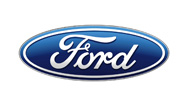Sustainable Land Use and Biodiversity
Our activities have the potential to affect land use, nature and biodiversity, directly and indirectly. Our real estate portfolio includes properties for manufacturing and office use. The construction and operation of these facilities have direct impacts on land.
Ford’s most significant potential impacts on land and biodiversity are indirect, occurring elsewhere in our value chain or arising from the use of our vehicles. Indirect impacts include the extraction of raw materials to make vehicle parts, habitat fragmentation from road construction, localized pollution from vehicles and the potential effects of climate change on biodiversity.
Many of our facilities have taken steps to improve biodiversity and wildlife habitat on their land, as follows.
Sustainable Landscapes
A highly visible example of Ford’s commitment to sustainability can be seen on more than 70 acres of Ford-owned land throughout southeast Michigan, which is adorned with sunflowers and native prairie plantings. These plantings provide habitat for wildlife such as white-tailed deer, red fox, wild turkeys and coyote. All of these species have been spotted at Ford World Headquarters, which has about six acres of native prairie. These plantings also reduce mowing and fertilization costs. By replacing what otherwise would be traditional turf grass, the Company saves approximately 30 percent on the costs of labor, gas and fertilizer. We also use native plants in our landscaping whenever possible, as they are better adapted to local conditions and provide food and shelter for wildlife.
In 2012, we began recycling our landscaping debris as compost in Ford-owned farm fields throughout southeast Michigan. By allowing our leaves, grass and plant clippings to collect and decompose throughout the summer, we were able to add more than 3,000 cubic yards of nutrient-rich compost to our fields in lieu of a synthetic, petroleum-based fertilizer.
We are also installing “smart” irrigation systems at some of our Dearborn (Michigan) properties. These systems use site conditions – such as soil and plant types, evapo-transpiration rates and local weather data – to program watering only when it is needed. To date, systems at 35 sites have been completed and are providing water savings of just over 30 percent. Systems at an additional 12 sites will be completed this year, with the remaining 28 sites to be completed over the next three years.
We are also reducing emissions produced in normal lawn maintenance by using propane-fueled mowers, which produce approximately 24 percent fewer greenhouse gas emissions, 20 percent fewer nitrogen oxide emissions, and 60 percent less carbon monoxide than gasoline-powered mowers. Propane also eliminates fuel spills that often occur during the refueling of traditional gas mowers, and propane is nontoxic and soluble in water. In addition to these environmental benefits, the vast majority of propane is domestically produced and it is less expensive than gasoline. Propane also increases mower engine life and reduces maintenance because it burns cleaner than gasoline, which further reduces maintenance costs and resource use. Fairlane Grounds, which provides lawn-mowing services at Ford facilities in the Dearborn area, has already converted 10 mowers (or about a quarter of their mower fleet) to run on propane instead of gasoline. All future scheduled mower replacements will be propane mowers, until the entire fleet is propane-powered. In addition, Fairlane Grounds has piloted tested Ford F-350 trucks converted to run on propane by Roush CleanTech and is planning to replace a portion of its vehicle fleet with propane autogas fueled units. They are also in the process of adding an on-site propane fueling station for trucks and mowers.
Creating Wildlife Habitat
Ford has created wildlife habitats at many of our facilities. We are committed to maintaining our existing wildlife habitat sites and to creating as many new sites as possible in the future. Wildlife habitats on Ford facilities range in size from five acres to more than 100 acres and include ecosystems as diverse as wetlands, woodlands, prairies, meadows and forests. Ford employees, often in partnership with local civic and education groups, develop and maintain the habitats, which host dozens of native plant and wildlife species. At many of the facilities, employees and other volunteers have built nature trails, erected bird and bat houses and planted wildflower gardens, in addition to establishing wildlife habitats. These facilities have also developed community education programs to encourage broader understanding of the importance of corporate wildlife sanctuaries.
In Europe, we have created large natural reserves at our facilities in Valencia, Spain, and Kocaeli, Turkey.
Our Mexican operations and dealers are also working to protect wildlife habitat and biodiversity. Since 1997, our Mexican operations have supported a Peninsular Pronghorn protection program. The Peninsular Pronghorn is an endangered species that lives only in the Baja California Peninsula. The program protects this species from hunting, depredation and the impoverishment of its natural habitat. After many years of effort, a captive population of the Pronghorn grew in size, and now they have been returned to their natural habitat. The program finished in May 2012.
Since 2007, Ford of Mexico and its dealers have been committed to promoting the importance of preserving protected areas through a communication project to inform and raise public awareness about the importance of biodiversity. The project, which included the production of video clips, printed articles and advertisements about seven major ecosystem types in Mexico (deserts, forests, rainforests, mountains, islands, reefs and wetlands), finished in December 2011. Ford of Mexico’s Civic Committee is currently working to identify and implement a new environmental program.










